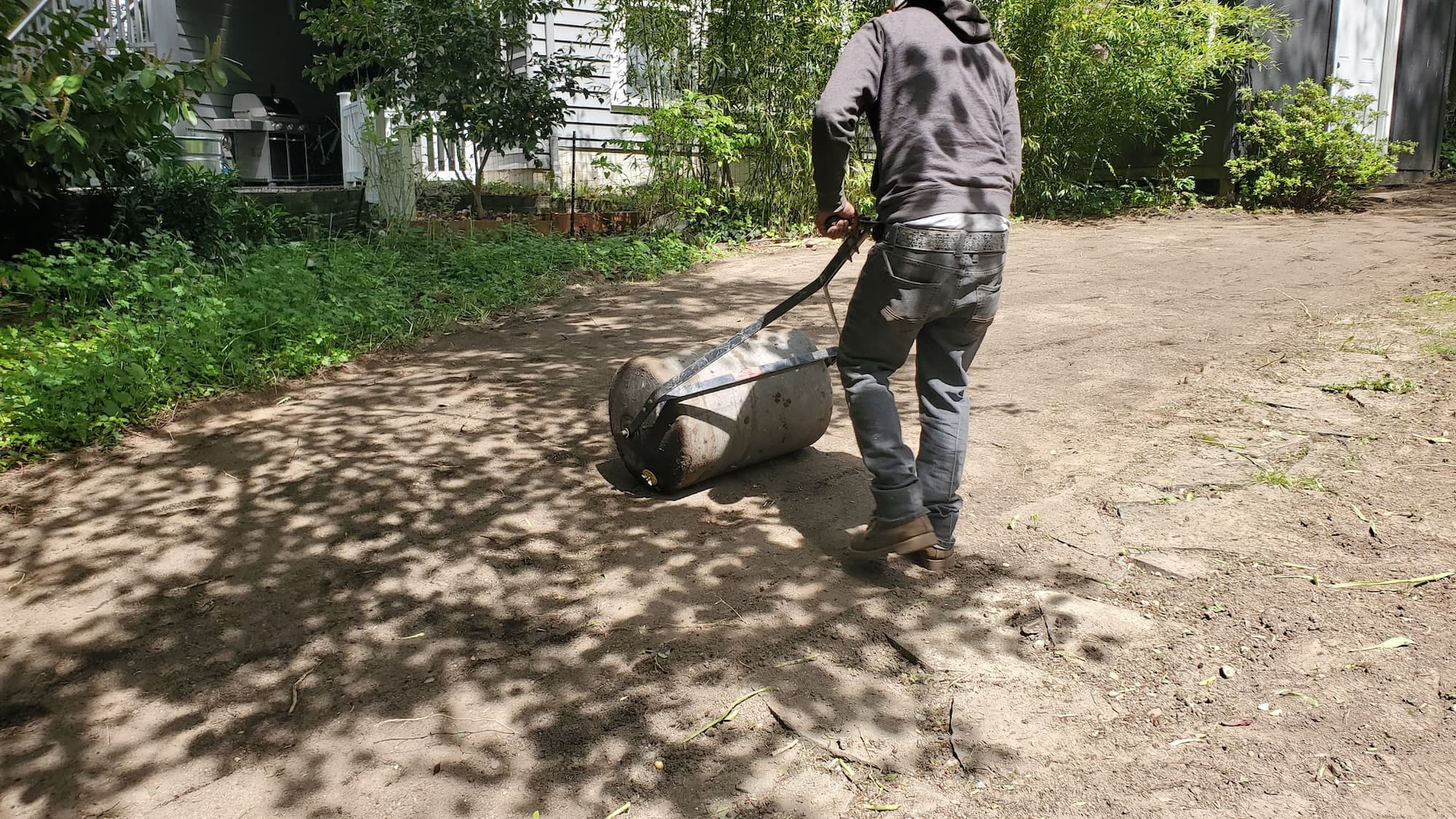West Seattle Black decorative gravel install
Homeowner’s Issue
West Seattle yards come with a familiar set of challenges: heavy autumn–winter rains that compact soil and encourage moss, steep little terraces and ravines on the hillside from High Point down toward Alki, and small, shaded corners around older homes that barely get afternoon sun. Our glacially influenced soils here are often a mix of dense clay pockets and loamy topsoil, which drains poorly unless you add a permeable base. Summer dries out fast in July–August, but that’s short — most of the year is wet, so mud, puddles, and washed-out bark are common problems.
Homeowners want tidy, modern curb appeal without constant upkeep or toxic sprays. They need surfaces that won’t rut or wash onto sidewalks or into storm drains during a downpour near Lincoln Park or along Fauntleroy. We also see rampant ivy, blackberry, and moss pressure in shady alleys and the north sides of houses, plus HOA rules that favor clean lines and low water use. A black decorative gravel layer, installed on a permeable, well-edged base with organic weed control and native-plant accents, solves drainage and appearance issues while staying within local environmental norms and municipal guidance against herbicides.
Our Quality Service
We prep, install, and finish with a focus on durability and sustainability. That means hand-removing invasive roots, correcting grades, installing a permeable crushed-rock base, installing durable edging, and spreading the decorative black gravel to depth. We use reusable tools, wheelbarrows, plate compaction where needed, and breathable geotextiles—biodegradable options available—never chemical herbicides. Typical jobs for a courtyard or driveway apron take a day; larger yards or sloped terraces can take 1–3 days depending on access and drainage fixes.
Local insights: we size drainage paths for West Seattle winter storms, add check-dams on slopes that shed toward Alki/Admiral streets, and recommend native low-grow plants (Oregon grape, salal, evergreen huckleberry) in transition edges to cut maintenance and hold soils. Benefits: fewer weeds, better storm performance, safer non-slip surfaces, improved curb appeal, and a lower water footprint.
What’s Included
- Site assessment and quick written estimate (photo or onsite).
- Hand-pull of major weeds and removal of invasive roots (no herbicides).
- Grading and correction of runoff paths to protect sidewalks/storm drains.
- Permeable crushed-rock base installed to spec for stability and drainage.
- Breathable landscape fabric (standard) — biodegradable fabric option available.
- Delivery and spread of black decorative gravel to agreed depth.
- Edging installed or reset to contain material and define lines.
- Final compaction and cleanup; hauled debris vs. green‑bin disposal options.
Options / Upgrades:
- Mulch with fabric for adjacent beds, or gravel + bark transition.
- Organic weed-control topping (composted bark fines) at edges.
- Haul-away (dump fees included) vs. green‑bin/curbside options.
- Native-plant accents and drought-tolerant planting package.
- Additional gravel top-up and annual refresh plans.
Before & After / Expectations
- Noise & mess: expect some noise from plate compactors and hauling; we leave the site broom-clean but not sterile—small gravel scatter is normal for a few days.
- Access: driveway or 10–20 ft clear path preferred; narrow access adds labor time.
- Timeline: small residential installs usually one workday; complex grading or slope stabilization can extend to 2–3 days.
- Debris handling: choose haul-away or green‑bin; stump/large root removal may incur extra fees.
- Performance: gravel settles slightly in the first few weeks; expect to top-up in 1–3 years depending on traffic.
Care tips for West Seattle: - Water new native plants only through the first dry season (July–Aug); after that they need minimal irrigation.
- Rake gravel lightly each spring to break any moss matting and reset edges.
- Watch for blackberry shoots and pull early in spring before they root.
- Use a leaf blower on low setting to clear fine debris—avoid high pressure that displaces gravel.
FAQs (3–5)
Q: Will you use herbicides to stop weeds?
A: No. We use manual removal, mulches, compost top-dressing, breathable fabrics (or biodegradable mats), and regular maintenance—no chemical herbicides.Q: How long before the gravel is ready for foot traffic?
A: Foot traffic is fine same day; vehicle loads may be delayed until compaction settles (often 24–48 hours), depending on base depth.Q: Can this work on a slope in Admiral or High Point?
A: Yes — we size the base, add check-dams or terraces, and use solid edging to prevent washout. Heavy slopes require longer lead times.Q: Do you handle permits or HOA approvals?
A: We’ll advise on typical HOA norms and local runoff concerns; permit needs are rare for surface installs but we’ll point out when an engineered fix is needed.
Call to Action
If you’re in West Seattle and want a tidy, durable yard that handles our winters without herbicides, book a free estimate. We schedule quickly, work efficiently, and leave clear care notes so your gravel stays looking good. Email neatandtidyseattle@gmail.com or call/text 206-538-9344 to get started. Licensed • Bonded • Insured.










